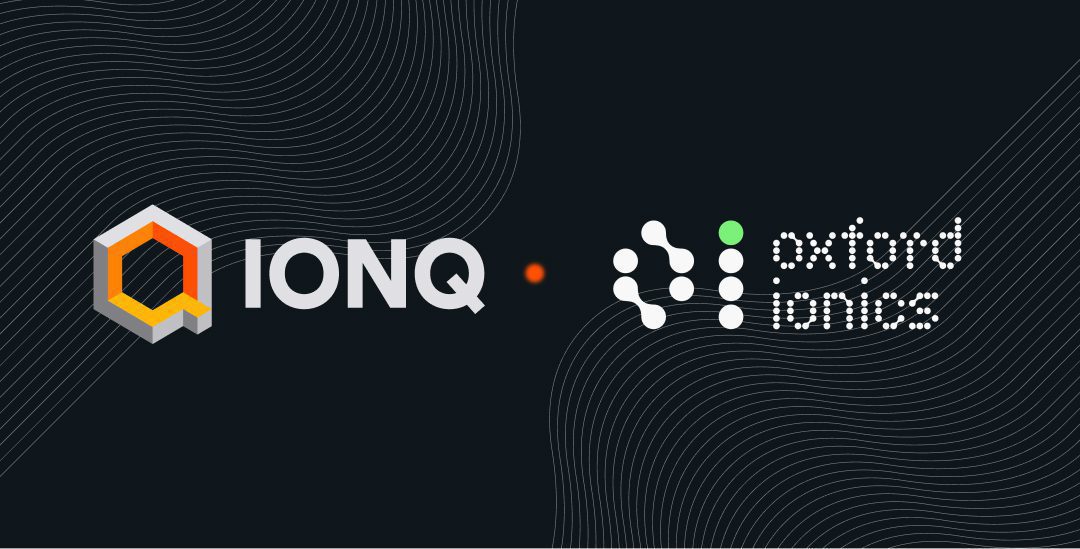
EU Boosts Quantum Tech Funding to drive innovation and secure technological sovereignty. The European Union is investing heavily in quantum technology, aiming to compete globally in this cutting-edge field. With private and public funding, the EU plans to advance quantum computing, networking, and applications by 2035. This article answers key “how-to” questions about this initiative. It explores the EU’s strategy, its implications, and how it affects industries worldwide, including in the United States.
Key Takeaways
- The EU is increasing funding for quantum technology to enhance innovation.
- Private-public partnerships aim to bridge the finance gap.
- The strategy targets trusted quantum computing systems by 2035.
- This move strengthens the EU’s global tech competitiveness.
- Impacts include advancements in healthcare, cybersecurity, and AI.
What Is Quantum Technology and Why Does It Matter?
Quantum technology uses principles of quantum mechanics to process information. Unlike classical computers, quantum systems leverage qubits for faster computations. This technology promises breakthroughs in multiple fields.
Contents
- 1 Why Is Quantum Technology Important?
- 2 How Does Quantum Technology Work?
- 3 What Are the Key Goals of the EU’s Quantum Strategy?
- 4 How Much Funding Is Involved?
- 5 How Can U.S. Companies Stay Competitive?
- 6 What Are the Risks for the U.S.?
- 7 Healthcare
- 8 Cybersecurity
- 9 Artificial Intelligence
- 10 How to Access EU Quantum Funding?
- 11 How to Prepare for Quantum Advancements?
- 12 United States
- 13 China
- 14 EU
- 15 How to Learn About Quantum Technology?
- 16 How to Follow EU Quantum Developments?
Why Is Quantum Technology Important?
- Speed: Quantum computers solve complex problems faster.
- Security: Quantum cryptography enhances data protection.
- Innovation: It drives advancements in AI and healthcare.
How Does Quantum Technology Work?
Quantum systems use superposition and entanglement. These properties allow qubits to exist in multiple states simultaneously. This enables rapid problem-solving for tasks like drug discovery or encryption.
How Is the EU Boosting Quantum Tech Funding?
The EU is launching a Quantum Strategy to strengthen its tech ecosystem. Announced in July 2025, this plan pools public and private funds. It aims to make quantum computing a cornerstone of sovereign infrastructure.
What Are the Key Goals of the EU’s Quantum Strategy?
The EU’s strategy focuses on long-term innovation. It emphasizes trusted compute systems and error-corrected quantum networks. Here are the main objectives:
- Develop quantum computing infrastructure by 2035.
- Foster collaboration between startups and research institutions.
- Attract global investment in quantum technology.
- Enhance tech sovereignty to reduce reliance on foreign systems.
How Much Funding Is Involved?
The EU is combining public funds with private investments. Exact figures vary, but estimates suggest billions of euros over the next decade. For example, the EU’s Horizon Europe program allocates €1 billion for quantum research by 2027. Private investors are expected to match or exceed this amount.
| Funding Source | Estimated Amount | Purpose |
|---|---|---|
| EU Public Funds | €1 billion+ | Research and infrastructure |
| Private Investments | €1-2 billion | Commercialization and startups |
| National Contributions | €500 million+ | Regional quantum hubs |
How Will the EU’s Quantum Investment Impact the United States?
The EU’s push for quantum technology affects global markets, including the U.S. American companies and researchers must adapt to stay competitive. Here’s how this initiative influences the U.S.:
How Can U.S. Companies Stay Competitive?
- Collaborate: Partner with EU firms for joint research.
- Invest: Increase funding for domestic quantum projects.
- Innovate: Focus on niche applications like quantum cryptography.
What Are the Risks for the U.S.?
If the EU leads in quantum computing, the U.S. could lag in key industries. These include cybersecurity, pharmaceuticals, and AI. The U.S. invested $1.8 billion in quantum research in 2024, but the EU’s new strategy may outpace this. American firms must act swiftly to maintain their edge.
How Can Quantum Technology Benefit Industries?
Quantum technology has transformative potential across sectors. Its applications range from healthcare to finance. Below are key industries and their benefits:
Healthcare
- Drug Discovery: Quantum systems simulate molecular interactions.
- Diagnostics: Faster data analysis improves accuracy.
Cybersecurity
- Encryption: Quantum cryptography secures sensitive data.
- Threat Detection: Quantum algorithms identify risks quickly.
Artificial Intelligence
- Machine Learning: Quantum computing speeds up model training.
- Optimization: Solves complex logistical problems.
| Industry | Quantum Application | Expected Impact |
|---|---|---|
| Healthcare | Molecular simulation | Faster drug development |
| Cybersecurity | Quantum cryptography | Enhanced data security |
| AI | Algorithm optimization | Improved efficiency |
How Can Businesses Leverage EU Quantum Funding?
Businesses worldwide can tap into the EU’s Quantum Strategy. This section outlines practical steps for companies, including those in the U.S.
How to Access EU Quantum Funding?
- Join Partnerships: Collaborate with EU-based quantum startups.
- Apply for Grants: Explore Horizon Europe funding programs.
- Network: Attend EU quantum tech conferences.
- Innovate Locally: Develop quantum solutions for EU markets.
How to Prepare for Quantum Advancements?
- Upskill Teams: Train employees in quantum computing basics.
- Invest in R&D: Allocate budgets for quantum experiments.
- Monitor Trends: Stay updated on EU quantum policies.
How Does the EU’s Strategy Compare Globally?
The EU is not alone in pursuing quantum technology. The U.S., China, and others are also investing heavily. Here’s a global comparison:
United States
- Investment: $1.8 billion in 2024.
- Focus: Quantum computing and networking.
- Strength: Strong private sector (e.g., IBM, Google).
China
- Investment: Over $15 billion since 2016.
- Focus: Quantum communication and satellites.
- Strength: Government-led initiatives.
EU
- Investment: €1 billion+ by 2027.
- Focus: Sovereign infrastructure and collaboration.
- Strength: Public-private partnerships.
| Region | Investment | Key Strength |
|---|---|---|
| United States | $1.8 billion | Private sector innovation |
| China | $15 billion+ | Government-backed projects |
| EU | €1 billion+ | Collaborative ecosystem |
How Can Individuals Stay Informed About Quantum Tech?
Staying updated on quantum technology is crucial for professionals and enthusiasts. Here are actionable steps:
How to Learn About Quantum Technology?
- Read Reports: Follow EU quantum strategy updates.
- Take Courses: Enroll in online quantum computing classes.
- Join Communities: Participate in quantum tech forums.
How to Follow EU Quantum Developments?
- Subscribe to Newsletters: Track EU tech policy updates.
- Follow Experts: Engage with quantum researchers on platforms like X.
- Attend Events: Join webinars on quantum advancements.
Summary
The EU’s Quantum Strategy is a bold move to lead in quantum technology. By pooling public and private funds, the EU aims to build trusted quantum computing systems by 2035. This initiative impacts industries like healthcare, cybersecurity, and AI. For the U.S., it’s a call to action to stay competitive. Businesses can leverage funding through partnerships and grants. Individuals can stay informed by following reports and experts. The EU’s investment signals a global race in quantum innovation, with far-reaching implications.
Frequently Asked Questions (FAQs)
- What is the EU’s Quantum Strategy?
The EU’s Quantum Strategy is a plan to advance quantum technology through public-private funding, targeting trusted systems by 2035. - Why is the EU investing in quantum technology?
To boost innovation, enhance tech sovereignty, and compete globally in fields like quantum computing and cybersecurity. - How much is the EU investing in quantum tech?
The EU is allocating over €1 billion by 2027, with additional private investments expected to match or exceed this amount. - How does quantum technology benefit industries?
It improves drug discovery, strengthens cybersecurity, and enhances AI through faster computations and secure systems. - How can U.S. companies benefit from EU quantum funding?
By partnering with EU firms, applying for grants, or developing quantum solutions for EU markets. - What is quantum computing?
Quantum computing uses qubits and quantum mechanics to process data faster than classical computers. - How does the EU’s strategy compare to the U.S.?
The EU focuses on collaboration, while the U.S. relies on private sector innovation, with $1.8 billion invested in 2024. - Can individuals access EU quantum funding?
Individuals can indirectly benefit by working with funded organizations or applying for research grants. - What are the risks of falling behind in quantum tech?
Lagging in quantum technology could weaken competitiveness in AI, healthcare, and cybersecurity. - How can I stay updated on quantum tech developments?
Follow EU reports, take online courses, and engage with quantum communities on platforms like X.
STAY AHEAD OF THE CURVE WITH THE LATEST TECH INSIGHTS AND UPDATES! FOR MORE TECH-RELATED NEWS, VISIT TECHBEAMS.


